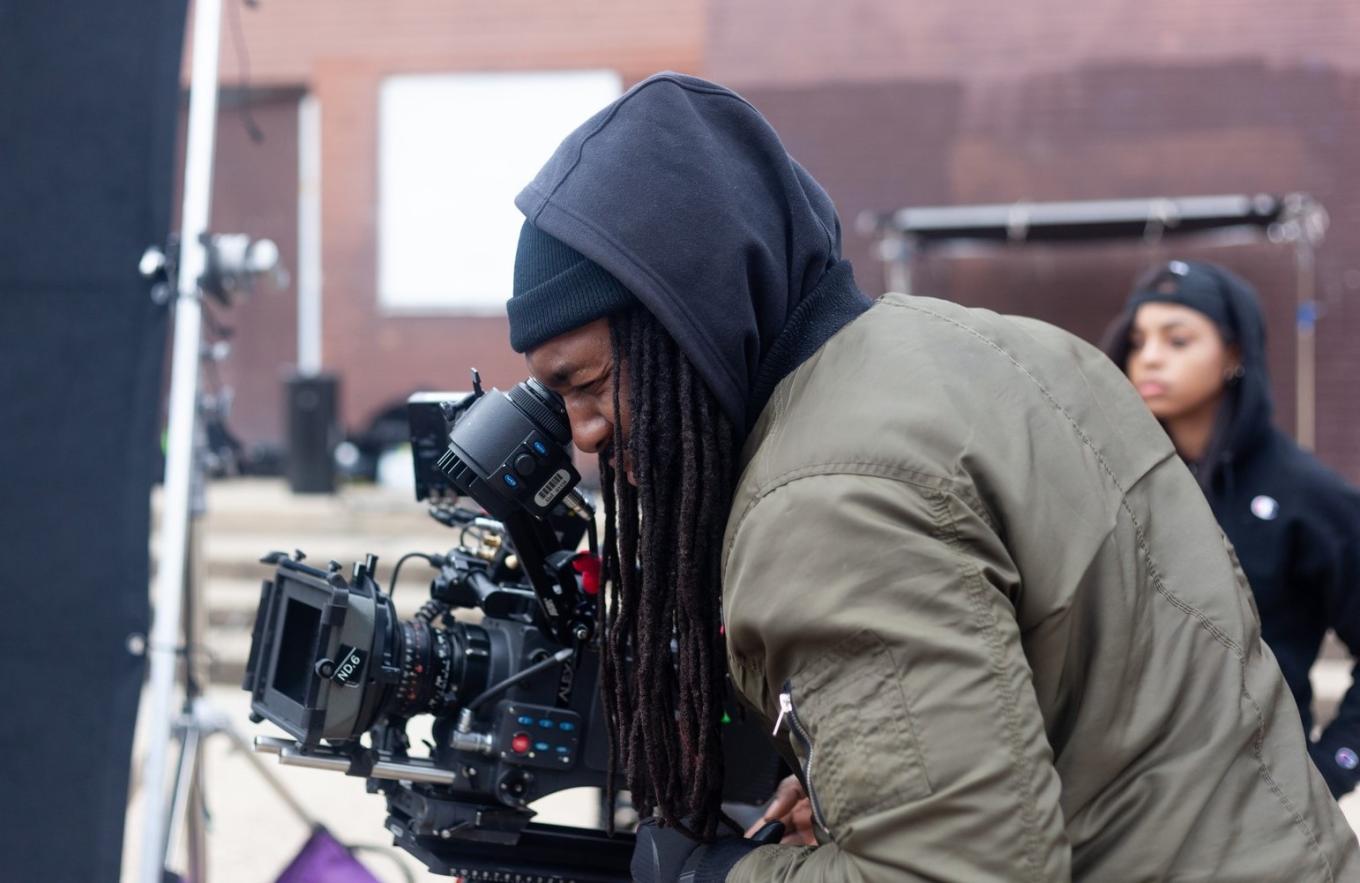
By Amy J. Barry
Rashad Frett ’09 lives by the acronym PIK: Progression is Key. And despite the economic hardships and social injustices the Central alumnus faced growing up in Hartford, he has never lost focus on his goals and has kept moving steadily forward.
Frett’s first foray into filmmaking was in high school when he captured on camera the drug and gun violence he saw around him. After he graduated in 1998, he entered the military where he served as an army medic until 2005. His unit was deployed to the front lines in New York City on Sept. 11, 2001, and the devastation he witnessed deeply affected him.
“All my life I’ve always been inspired by things around me,” Frett says. “It was 9-11 that gave me a different perspective on what was really going on in the world. I was young, not into politics, but what could I do? How could I voice my opinion without going that route? I thought about film and its immediacy for creating and developing stories.”
Next stop, Central, where he enrolled as a full-time undergraduate in 2005. He attributes the university with getting him to where he is today — the hands-on courses, the students he met and continues to collaborate with on film projects, and the positive impact of his professors, particularly Jeff Teitler, an associate professor of Communication.
“Honestly I think he changed my life as far as focusing on what I wanted to do on a full-time basis,” Frett says. “The stuff we learned from Jeff was priceless and I still apply it to this day.”
After he graduated from Central, Frett worked at the university’s Institute for Municipal and Regional Policy — a nonpartisan office that promotes, develops, and implements public policy — making documentaries about racial profiling and children of incarcerated parents.
In 2011 he made his directorial debut on “The Second District,” a TV pilot that received national acclaim.
“It was Connecticut’s version of ‘The Wire,’” Frett explains. “It blew up on YouTube and went viral.”
Frett went on to work at HARC-CT Intellectual Disabilities Advocacy and the Capitol Region Educational Council but continued to develop his skills as a filmmaker.
The next chapter
In 2016, Frett was accepted into the prestigious NYU Tisch Graduate Film program. He received his MFA from NYU in May 2021.
During that time, he collaborated as an editor and still photographer with fellow NYU film students on the short film “Cracked” about a young girl falling in love for the first time during the ’80s crack epidemic in New York City. It aired on HBO Max and was shown at the Tribeca film festival in June 2022.
A performance video he shot for Grammy-award winning Pharoahe Monche and his band THIRT3EN aired on “The Late Show with Stephen Colbert.” NPR, Tiny Desk, and Rolling Stone all interviewed him about the process of putting a music video together.
He adds the 2021 Cary Fukunaga Production Fund award to his impressive list of awards, which, along with the 2018 Martin Scorsese Young Filmmakers scholarship is financing his first feature film, “Ricky.”
Based on a short he wrote for his NYU thesis, Frett explains that the main character, Ricky — a recently released ex-offender who meets with his parole officer — is a compilation of stories of friends and family and their struggles in and out of the prison system.
“This is the work we were tackling at IMRP at Central,” he says, “on topics such as recidivism and children of incarcerated parents in our communities.”
The short was featured as part of the Short Film program of the 2023 Sundance Film Festival.
He is also completing the script for the full-length version of his short film, K.I.N.G., which won Best Short Film at the 2020 Caribbean Tales Film Festival.
The powerful story is based on Frett’s own life.
“I tried to stay away from exposition and make it feel almost like a documentary,” he says. “It’s based on my life during my teen years. I was a good kid, but troubled, and always wanted to connect with my father. He was around but he wasn’t around. I had support from my Caribbean family — my mother, grandmother, aunts, uncles — but didn’t have a mentor growing up.”
Looking back to where his formal film education began, Frett says, “I love Central. When I was up there, I saw the banners of people who’ve become successful that fly around the campus. One day I want to be among them. I still wear my Central shirt. I still represent it.”




